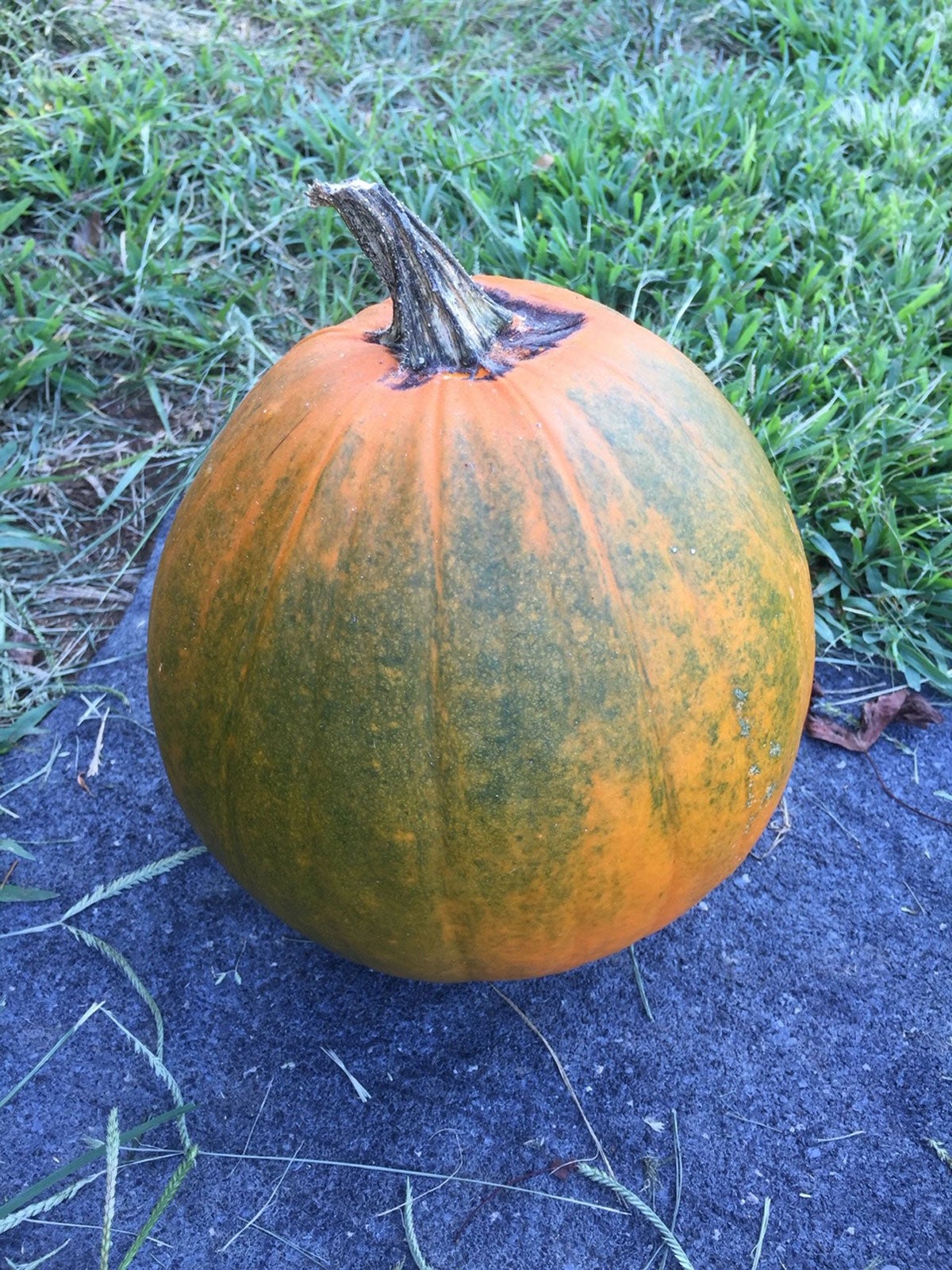Pumpkin Mosaic Virus: How To Treat Pumpkins With Mosaic Virus


Sign up for the Gardening Know How newsletter today and receive a free copy of our e-book "How to Grow Delicious Tomatoes".
You are now subscribed
Your newsletter sign-up was successful
You didn't intentionally plant a variety of the so-called “ugly” pumpkins. Yet, your traditional pumpkin crop is covered with weird bumps, indentations, or odd coloration. At first you might think this is the result of a seed mix-up. Then you notice your yields are down and no new pumpkins are developing. What you may be seeing are pumpkins with mosaic virus.
What is Pumpkin Yellow Mosaic Virus?
Several different types of pathogens are responsible for causing mosaic virus in pumpkin plants. Generally, these viruses are named for the first species in which they were identified. So even though zucchini yellow mosaic virus (ZYMV) was first isolated in zucchini plants, it doesn't necessarily mean only zucchini can be infected by ZYMV.
In fact, zucchini plants may not even be ZYMV's primary host. Often, mosaic viruses can infect a wide range of plants, including weeds. There is only one way to accurately determine which pumpkin mosaic virus is affecting your future jack-o-lantern crop and that's to send a sample of infected plant tissue to a laboratory for testing.
Fortunately, that's not necessary or even helpful, as there are no current means of curing viral infections in plants. Instead, gardeners are advised to focus on identifying, preventing, and eliminating sources of mosaic virus in pumpkin crops.
Identifying Symptoms of Pumpkin Mosaic Virus
- Mottled leaves with areas of tonal differences in color
- Shriveled, puckered, or contorted leaves
- Deformed, warty, or bumpy pumpkins
- Green or yellow stripes or blotches on mature pumpkins
- Undersized fruit or lack of fruit development, especially toward the ends of the stems
- Signs of secondary infections, like rotting
- Lower than expected pumpkin yields
- Stunted plant growth
- Flowers exhibiting an unusual shape or size
- Symptom development occurs faster on warm days after the summer solstice
- The presence of vector insects, namely aphids
Controlling Mosaic Virus in Pumpkin Patches
Most pumpkins with mosaic virus were infected through vector transmission from aphids. Controlling aphid populations seems the logical solution for stopping the spread of pumpkin yellow mosaic virus. However, transmission of the virus occurs rapidly once the infected aphid begins feeding.
By the time aphids are detected, it's usually too late to spray. Instead, try these methods for controlling the spread of pumpkin mosaic virus:
- Remove Weeds: Other species of plants can harbor both the pumpkin mosaic virus and aphids. Frequent weeding and mulching can remove these plants from around pumpkin plants.
- Rotate Crops: Many of the mosaic viruses also infect other members of cucurbit family. These include squash, zucchini, cucumbers, and melons. If possible, plant these family members in different areas of the garden each year.
- Clean-up Diseased Plant Material: To prevent further spread of the disease remove and properly dispose of plants infected with mosaic virus. Avoid placing diseased plant material in compost bins as soil can harbor viral diseases.
- Disinfect: After handling infected plants, be sure to wash hands or gloves. Disinfect tools and planters to avoid contamination.
- Plant Mosaic-Resistant Pumpkin Cultivars: In areas where mosaic virus is abundant, planting mosaic-resistant varieties may be the best option. Pumpkin varieties like Corvette, Magician, or Orange Bulldog have resistance to particular mosaic viruses.
Sign up for the Gardening Know How newsletter today and receive a free copy of our e-book "How to Grow Delicious Tomatoes".

Laura Miller has been gardening all her life. Holding a degree in Biology, Nutrition, and Agriculture, Laura's area of expertise is vegetables, herbs, and all things edible. She lives in Ohio.